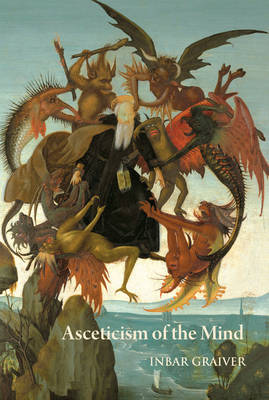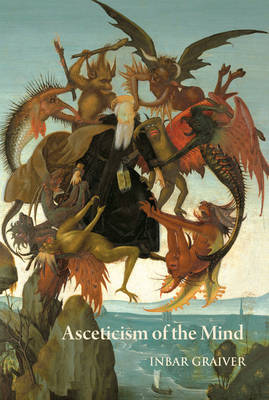
- Afhalen na 1 uur in een winkel met voorraad
- Gratis thuislevering in België vanaf € 30
- Ruim aanbod met 7 miljoen producten
- Afhalen na 1 uur in een winkel met voorraad
- Gratis thuislevering in België vanaf € 30
- Ruim aanbod met 7 miljoen producten
Zoeken
Asceticism of the Mind
Forms of Attention and Self-Transformation in Late Antique Monasticism
Inbar Graiver
€ 63,95
+ 127 punten
Omschrijving
Asceticism is founded on the possibility that human beings can profoundly transform themselves through training and discipline. In particular, asceticism in the Eastern monastic tradition is based on the assumption that individuals are not slaves to the habitual and automatic but can be improved by ascetic practice and, with the cooperation of divine grace, transform their entire character and cultivate special powers and skills. Asceticism of the Mind explores the strategies that enabled Christian ascetics in the Egyptian, Gazan, and Sinaitic monastic traditions of late antiquity to cultivate a new form of existence. At the book's center is a particular model of ascetic discipline that involves a systematic effort to train the mind and purify attention. Drawing on contemporary cognitive and neuroscientific research, this study underscores the beneficial potential and self-formative role of the monastic system of mental training, thereby confuting older views that emphasized the negative and repressive aspects of asceticism. At the same time, it sheds new light on the challenges that Christian ascetics encountered in their attempts to transform themselves, thereby lending insight into aspects of their daily lives that would otherwise remain inaccessible. Asceticism of the Mind brings rigorously historical and cognitive perspectives into conjunction across a range of themes, and in so doing opens up new ways of exploring asceticism and Christian monasticism. By working across the traditional divide between the humanities and the cognitive sciences, it offers new possibilities for a constructive dialogue across these fields.
Specificaties
Betrokkenen
- Auteur(s):
- Uitgeverij:
Inhoud
- Aantal bladzijden:
- 248
- Taal:
- Engels
- Reeks:
Eigenschappen
- Productcode (EAN):
- 9780888444295
- Verschijningsdatum:
- 22/11/2021
- Uitvoering:
- Paperback
- Formaat:
- Trade paperback (VS)
- Afmetingen:
- 152 mm x 229 mm
- Gewicht:
- 408 g

Alleen bij Standaard Boekhandel
+ 127 punten op je klantenkaart van Standaard Boekhandel
Beoordelingen
We publiceren alleen reviews die voldoen aan de voorwaarden voor reviews. Bekijk onze voorwaarden voor reviews.











